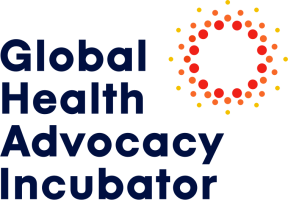
Building More Inclusive Civil Registration and Vital Statistics Systems
Global Health Advocacy Incubator
Civil Society
Global
GHAI works to advance CRVSID systems that are accessible, equitable, and inclusive of all people, including gender diverse communities, ensuring that everyone counts and is counted. GHAI commits to growing this vital work and expanding its impact over the next three years.
At GHAI, we use the power of advocacy to reduce preventable deaths and improve health at scale by changing policies and improving systems. GHAI is an implementing partner of Bloomberg Philanthropies’ Data for Health Initiative. Data for Health partner organizations work with governments to strengthen data on births and deaths, and causes of death, so governments can save and improve lives through better-informed public health policies. GHAI’s Data for Health project involves reviewing countries’ legal frameworks, providing technical assistance to reform laws, and supporting budget advocacy to achieve sustainable funding for Civil Registration, Vital Statistics and Identity Management (CRVSID) systems. GHAI also supports local civil society organizations to advocate for strengthened and improved CRVSID systems to ensure universal coverage and access.
Access to civil and identity registration is vitally important for all people because these systems provide legal identity documentation. This documentation is essential for the exercise of human rights and to benefit from and access services, including education, voting, and healthcare.
It is often marginalized communities who experience difficulties in accessing CRVSID services. Gender diverse people such as transgender and nonbinary people, amongst others, often face exclusion from these systems, which typically use binary sex and gender categories. Having gender incongruent registration and identification can have significant negative impacts on people’s lives and impede their access to services, benefits and justice.
GHAI commits to working toward building more accessible, equitable, and inclusive CRVSID systems, in line with best practices and international human rights standards, to advance access for all people, including the gamut of LGBTQIA+ communities.
GHAI commits to working in close collaboration with communities who have historically experienced exclusion from CRVSID systems. GHAI will center and uplift their expertise and insights in this work.
GHAI commits to further fostering partnerships and collaborations with key stakeholders to advocate for accessible, equitable and inclusive CRVSID systems.
GHAI commits to continuous learning and knowledge production, including intersectional analyses of the barriers multiply marginalized people face in accessing CRSVID services.
GHAI commits to strengthening our work on inclusive data, with a view to considering CRVSID systems’ interaction with cross-cutting thematic issues such as the triple-planetary crisis (climate change, pollution, and biodiversity loss), migration and new technologies.
